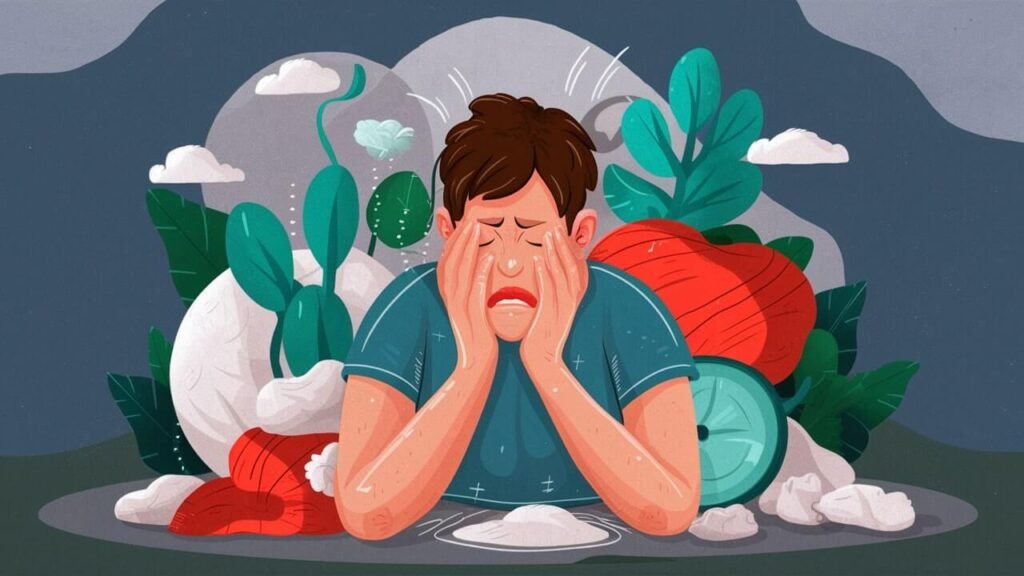With first-hand experience, I noticed avoiding alcohol while in rehab is a struggle for patients. I saw my patients having withdrawal or relapse.
Even reports claimed that 50% of alcoholics who receive therapy stay sober for a year. Alcohol rehab patients struggle to complete the whole session.
In this blog, I will delve into the various challenges that individuals face during alcohol rehab. You’ll explore the physical, individual, and emotional obstacles in alcohol rehab.
The Physical Challenges of Alcohol Rehab

Getting over the physical problems of stopping drinking is one of the most complex parts of alcohol rehab, as far as I warn you as a specialist.
Addiction to alcohol affects both the mind and the body, and it can lead to several health problems that need medical care. Such as-
Withdrawal Symptoms
If you have been drinking a lot for a long time and then stop, you may have withdrawal signs, including Anxiety, Tremors, Nausea, Vomiting, Headache, Insomnia, Seizures, and Delirium tremens (DTs).
During my time working at a rehabilitation center, I had the privilege of witnessing firsthand the struggles that patients face during alcohol rehab journeys.
One memorable patient, Jeffry (Not his real name), demonstrated remarkable resilience in overcoming withdrawal symptoms such as extreme vomiting and headache.
There are many patients in alcohol and drug rehab struggling with addiction. Alcohol rehab patients should never try to detox on their own. Instead, you should go to a qualified center to get help.
Medical Complications
Abusing alcohol can hurt the liver, stomach, heart, brain, and nervous system, among other parts of the body.
Patients in alcohol rehab should go through a complete medical evaluation to find out how their bodies are doing and get the proper care.
Weight Gain
While practicing as an expert, I found some alcohol rehab patients struggle with weight gain, another physical problem. Alcohol has a lot of calories and can also change your hunger and metabolism.
One who stops drinking may feel hungry and want more sweet or fatty foods. Some drugs used to treat alcohol withdrawal or abuse can also cause you to gain weight.
The Emotional Challenges of Alcohol Rehab Patients Struggle
Alcohol rehab is a way to get better that includes your body, mind, and emotions. Having worked closely with rehab patients, I can’t help but admire their determination to overcome both physical and emotional hurdles.
Witnessing their journeys has deepened my understanding of the resilience of the human spirit.
Even though it can be hard to get rid of alcohol from your body, it is often the emotional problem that causes the most trouble for many. Those who complete drug and alcohol rehab and stay sober for three months have a 30% success rate.
Lindsay Lohan, a known celeb from the year 2000, had been to rehab multiple times for addiction.
But as far as we got to know, she faced several emotional breakdowns that caused a relapse. Even several news portals covered her unsuccessful rehab.
Source: FoxNews

Some other challenges can be-
Depression
Depression is a mood disease that always makes you feel sad, hopeless, and uninterested. It can happen to anyone, but addicted to drinking are more likely to get it.
In my experience, I’ve found that the emotional challenge for rehabilitation can be the most daunting for my patients. I recall a patient I worked with who struggled with depression, and the story serves as a powerful reminder of the emotional toll addiction can take.
Alcohol can worsen sadness because it changes brain work, lowers serotonin levels, and makes it harder to deal with stress. Depression can also lead to a return because you may drink to forget about how it feels.
Anxiety
Anxiety is a normal feeling that you have now and then. It can help you prepare for hard times and warn you of possible risks. But when anxiety is too much, stays for a long time, and makes no sense, it can get in the way of everyday life and health.
Alcohol rehab mental health issues include some of the most common mental health problems worldwide, often happening simultaneously with alcoholism.
Anger
You may get angry sometimes. It’s a normal feeling. It helps you show how you feel, stand up for your rights, and protect yourself from harm.
But when anger is too intense, happens too often, and can’t be stopped, it can lead to aggressiveness, violence, and actions that hurt oneself.
Problems with anger are often linked to alcoholism because alcohol can lower inhibitions, cloud judgment, and make people more impulsive.
The Psychological Challenges of Alcohol Rehab
Alcohol rehab is a way to get better that includes your body, mind, and emotions. Even though it can be hard to get rid of alcohol from your body, it is often the mental hurdles that are the hardest for most.
Based on my experience, I can say psychological issues aren’t only connected with mental and physical issues but also with individuals and thoughts of the individual.
Cravings
Cravings are strong urges to drink alcohol. Alcohol rehab patients struggle with these kinds of cravings. Stress, boredom, social settings, memories, or feelings can cause them.
Cravings can be hard to fight, and if they aren’t handled well, they can lead to relapse.
Urges To Relapse
Urges to relapse are thoughts or feelings that make you want to drink again after you have stopped drinking. In rehab, relapse urges can be powerful, making it hard to believe in and stay committed to the treatment.
Lack of Motivation
Your recovery can be hurt by a lack of motivation, leading to poor adherence, low engagement, less happiness, and a higher risk of dropping out, as far I know as an experienced.
Factors That Contribute to Struggles
Many alcohol rehab patients face challenges for rehabilitation in their recovery journey. Sometimes, the reason can be the rehab itself, the surroundings, the lack of supporting elements, and many more.
Some of the factors that contribute to these struggles are-
Alcohol Abuse Duration
The longer you abuse alcohol, the more likely you will become physically and mentally dependent.
That makes it harder to stop and makes it more likely that you will start drinking again. Rehab may become a hassle for you, and you start thinking of it as a struggle period.
Co-occurring Disorders
Some addicts in alcohol rehab may also have mental health problems like depression, anxiety, or PTSD, making it harder to get better and requiring specialized care.
Alcohol rehab patients struggle with mental health problems as alcohol affects the brain.
Lack of Support System
A solid family, friends, and peer network can be essential for staying sober and dealing with stress.
But in some alcohol rehab, you may not have this kind of support system or may be judged by friends and family. That results in feeling alone.
Insufficient Treatment
Some patients may also not finish the treatment program or use support services, which can hurt their chances of getting better in the long run.
A few years back, my patient Harry suddenly stopped his treatment in the middle without any consultation with me.
After 2 months after the incident, he visited me again but this time his severity of addiction was much higher and tough to overcome.
Overcoming the Challenges of Alcohol Rehab
There are many challenges for rehabilitation If you’re considering going to rehab for drinking. You may wonder what problems you’ll face and how to deal with them.
Getting Support
Having a solid network of people who care about you is one of the most essential parts of alcohol rehab.
You can get help in many ways, such as joining a support group, going to therapy, talking to people you care about, or using online tools.
Setting Goals
Setting goals that you can reach is another essential part of drinking rehab. Using the SMART framework, you can ensure that your goals are clear, measurable, attainable, meaningful, and have deadlines.
Developing Coping Mechanisms for Alcohol Rehab Patients Struggle
Coping mechanisms are ways to deal with complex events in a healthy, helpful way. You can try different ways to deal with stress and see what works best.
We examined if drinking rehab patients experience problems. It has demonstrated that each person’s recovery depends on numerous factors, including addiction severity, treatment duration, therapy, and personal situation. It has also demonstrated some common issues alcohol treatment patients experience and ways to overcome them. Know what happens in rehab.
- What to Pack for 30-Day Rehab? FREE Checklist - May 30, 2024
- Types of Outpatient Rehab: Difference One Should Know - March 28, 2024
- Truth Behind FMLA: Hidden Hurdles of Alcohol Rehab Leave - March 28, 2024